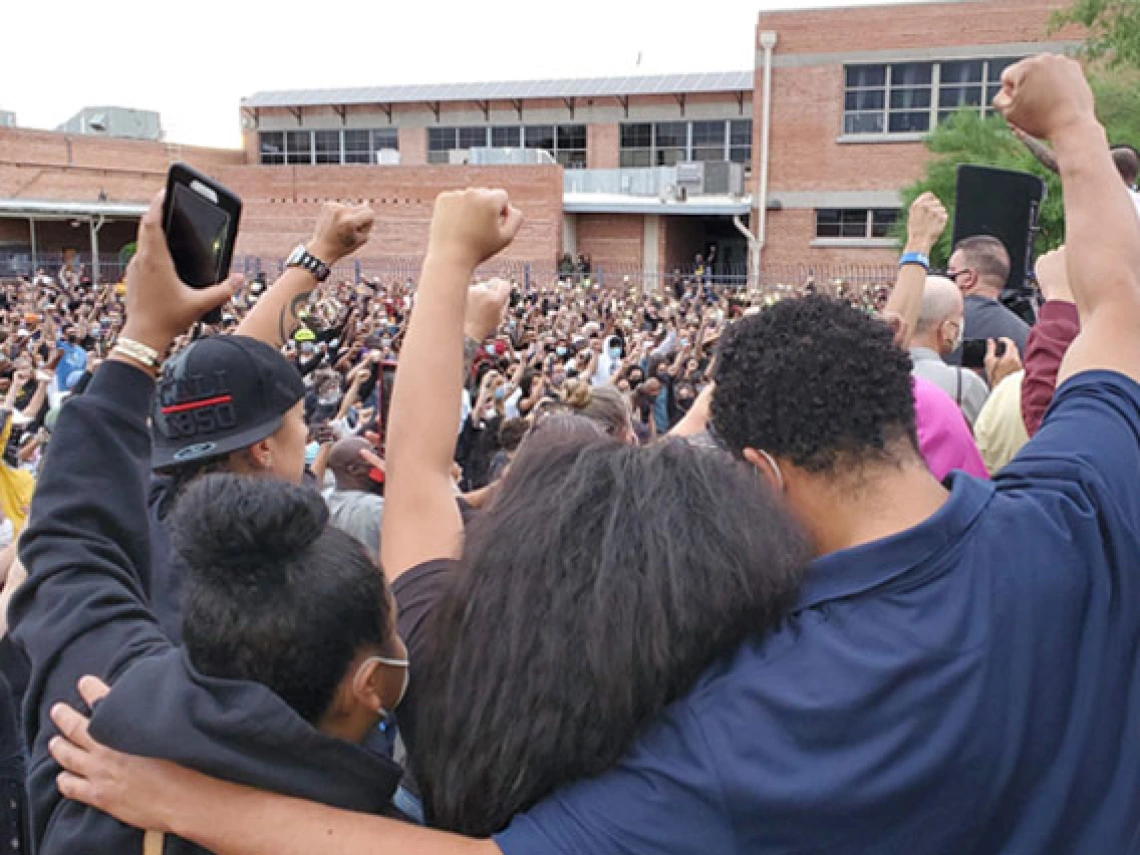Standing and Uniting as a College Against Racial Injustice

Photo credit: KVOA News
Dear Honors Students,
I held my fist high in the air for eight minutes and forty-six seconds at a peaceful candlelight vigil last night. 8 minutes, 46 seconds. My arm burned. I noticed my arm slowly going down. I pushed it up higher. George Floyd was pinned under an officer’s knee for eight minutes, forty-six seconds, but he did not have the opportunity to catch another breath.
“I can’t breathe.”
Words are difficult to find that completely capture the emotions many are feeling.
The tragic circumstances surrounding the death of George Floyd, in addition to the recent deaths of Breonna Taylor and Ahmaud Arbery, are examples of the systemic racism that permeate our country.
Black Americans have a long history of being a target of hate crimes and violent acts because of their race. For many, these killings illuminate the daily fears that Black Americans face regarding racial profiling, attacks, and killings based on the color of their skin. This history of injustice and suffering endured by the Black American community dates back to slavery in this country.
The day before George Floyd’s murder, we witnessed a disturbing incident of false reporting centered on race when Christian Cooper, a Black birdwatcher in Central Park, was falsely accused of threatening a white woman, who reported him to the police. History has demonstrated all too well how Christian Cooper’s fate could easily have followed that of the Scottsboro Boys, Emmet Till, The Central Park 5, and numerous other Black American men and women unjustly accused of violence.
Amid a global health pandemic that has disproportionately impacted Black Americans by 54.6 deaths per 100,000, they are also experiencing hate and violence - a public health crisis. Violence towards Black Americans not only impacts the individual physically, but can often lead to psychological distress, which can include a general sense of fear, hopelessness, and anger that can develop into anxiety, post-traumatic stress (PTSD), and depressive disorders.
We are a community of scholars committed to creating a safe, welcoming, and inclusive environment. Educate yourself and become part of the solutions to dismantle systemic discrimination. Do not ask someone to do it for you. Spend time reviewing anti-racism resources, toolkits or taking an implicit bias test.
If you are seeking support, please consider these campus resources:
- Counseling and Psychological Services
- African American Student Affairs
- Dean of Students Office
- Student Wellness
The Honors College is working to create meaningful opportunities to discuss these tough topics and move to action that will lead to a better world.
In Solidarity,
Dr. Cheree Meeks
Assistant Dean for Programs, Diversity & Inclusion

